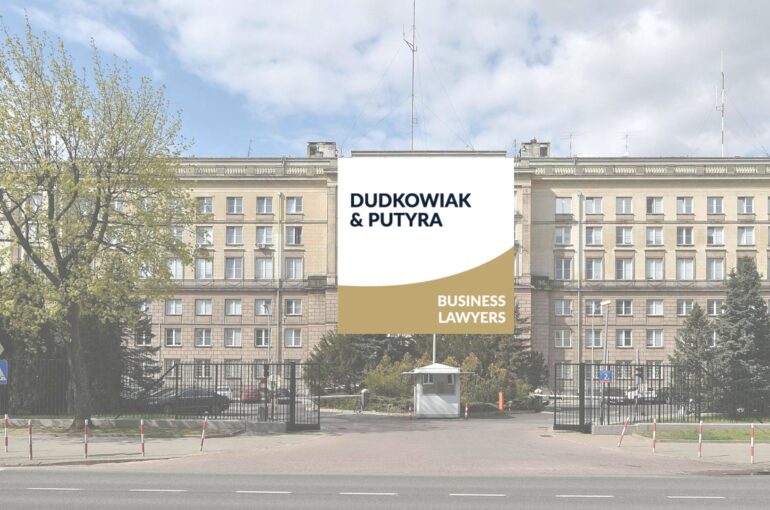Interruption of deadlines for the duration of the COVID-19 epidemic
The President has signed an amendment special act to the COVID-19 which is part of the so-called „Anti-crisis shield” introduced in connection with the current epidemic. The amendment suspends, among others time limits for civil progress and services. This makes it much easier for administrators who have comments on the scope of operation of e-mail, courts, offices and the transition of many employees to remote work, may have problems with keeping them.
Originally, the draft amendment assumed the suspension of time limits in a wider scope, including material time limits in civil cases (including limitation periods). Ultimately, however, the suspension of material deadlines was only applied to deadlines in administrative matters.
According to the draft law, the suspension of the time limits provided for in the administrative law for the duration of an epidemic emergency or state of epidemics includes:
- time limits on whose behaviour the granting of legal protection before a court or authority is dependent,
- time limits for a party to perform the activities shaping its rights and obligations,
- the statute of limitations,
- time limits, the failure to comply with which results in the expiry or modification of rights in rem and claims,
- time limits that will be delayed if they are not observed,
- overdue periods, the failure to comply with which the law has negative consequences for the party,
- time limits for entities subject to registration to undertake activities requiring registration and time limits for the performance by those entities of their obligations arising from the provisions on their system.
In addition, the following are subject to suspension
- limitation periods for the punishability of the act and limitation periods for the execution of the sentence in cases of fiscal offences and in cases of misdemeanour,
- procedural and judicial deadlines, including in court proceedings, including administrative, enforcement, criminal, penal fiscal, misdemeanour, administrative, customs and treasury proceedings and controls carried out under the Tax Ordinance Act, customs and treasury controls and other proceedings carried out under the Act,
- deadlines for the silent treatment of the case,
- time limits in any other case in which the absence of an objection, decision, order or other determination by the authority entitles a party or participant to take action, act or affect the rights and obligations of a party or participant to proceedings,
- time limits for the authority to express its position or to issue an individual interpretation, except for an individual interpretation in tax matters.
During this period, no public hearings or meetings will be scheduled, except in cases of urgency as defined in the Act.
For the duration of an emergency or epidemic condition, the above deadlines shall not start, and if they have started earlier, they shall be suspended. The period of suspension shall not be taken into account in calculating the period. Once the suspension has ended, the period will continue to run and the period of suspension will not be taken into account for the calculation.
However, actions taken by the parties during that time to exercise the power or duty will be effective.
The following are excluded from the suspension of the gear:
- time limits deadlines in urgent matters indicated in the Act (e.g. on provisional arrest, ordering a break in the execution of the sentence in the electronic surveillance system, in cases where a detention order has been issued),
- time limits in cases of selection or appointment of bodies whose term of office is set out in the Constitution of the Republic of Poland,
- time limits in proceedings in cases of legal motions and questions initiated and not completed before the Constitutional Court,
- time limits in cases of prior control of contracts or framework agreements co-financed by the European Union and appeals in public procurement procedures.
In addition, in the event of the death of an employer who has not established a succession board (Article 632 § 5 Labour Law) the period of time concerning the duration of the employment contract is not suspended, but if the 30-day period for agreeing on the continuation of the employment relationship under the existing rules expires during an epidemic hazard or state of epidemics, the parties have 30 days from its end to conclude such agreement.
In certain cases, the courts, authorities and bodies carrying out proceedings or inspections, as appropriate, may call for a particular action to be taken within a period of time to be determined by them, in specific cases where there is an important public interest or a party’s interest and where failure to take action would result in a danger to human or animal life or health, or in serious harm to the public interest, or in imminent and irreparable material damage.
The planned changes take effect the day after the announcement in the Journal of Laws.


